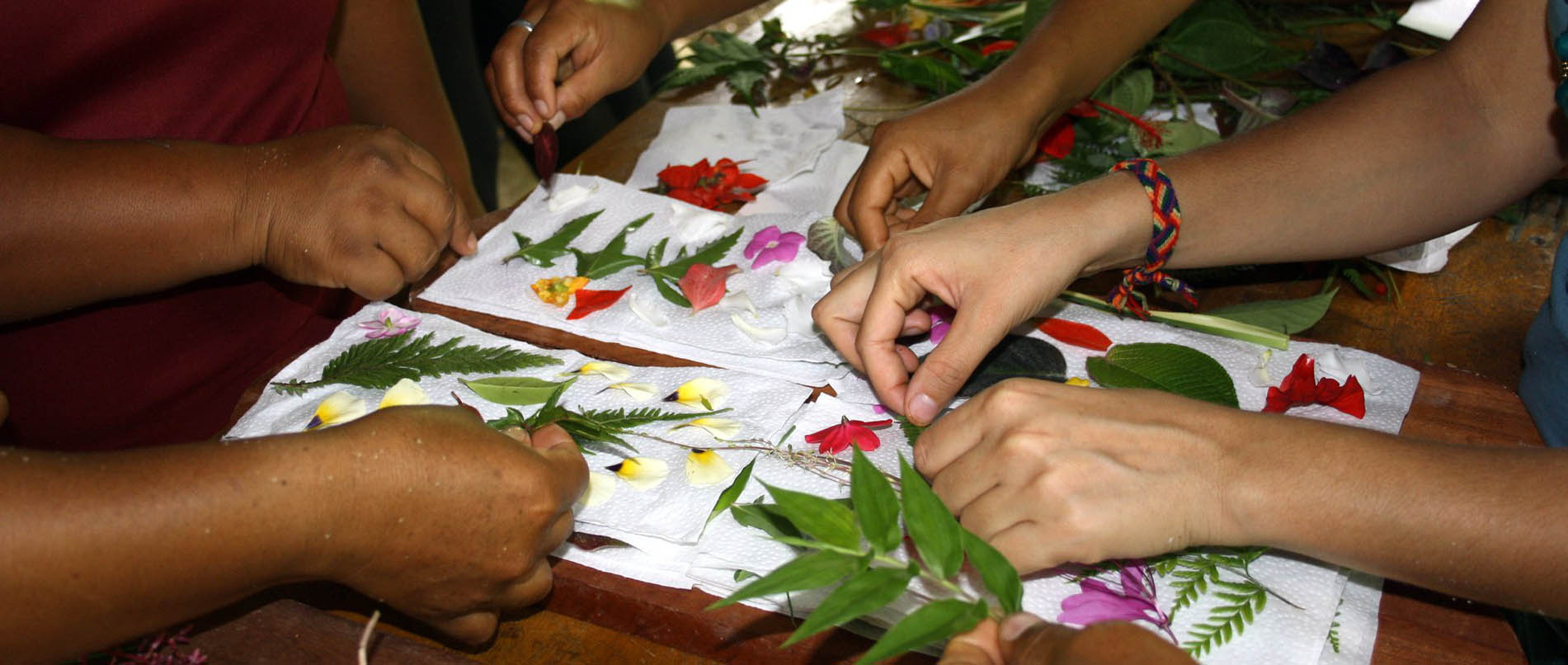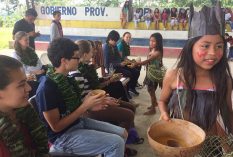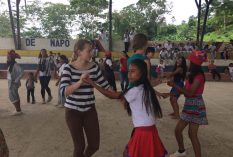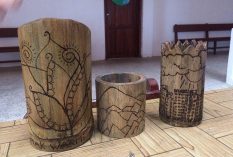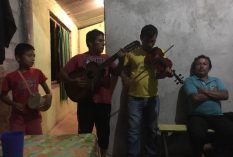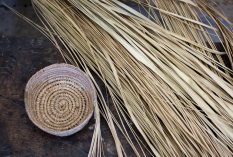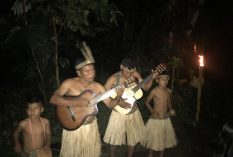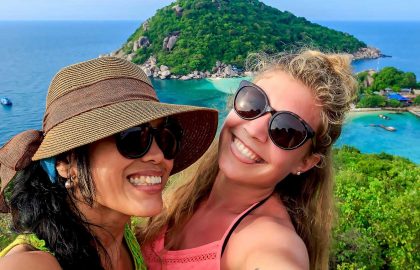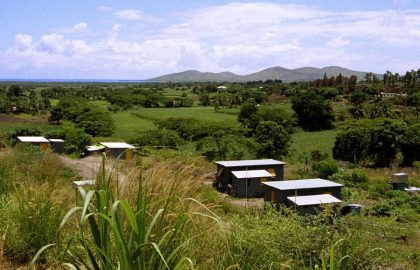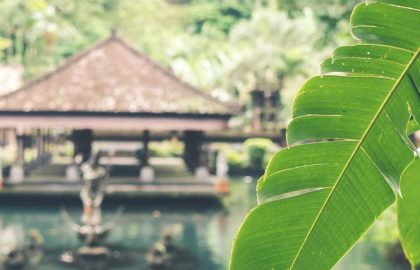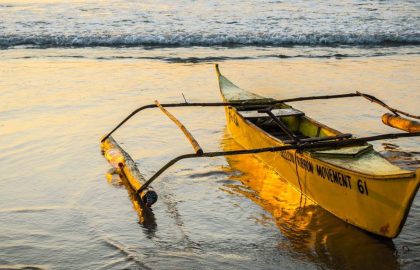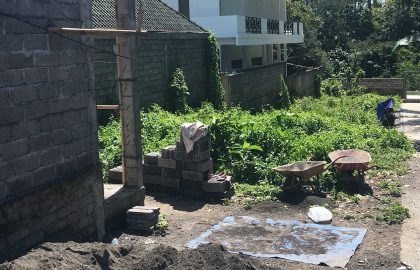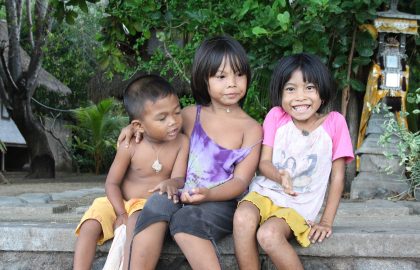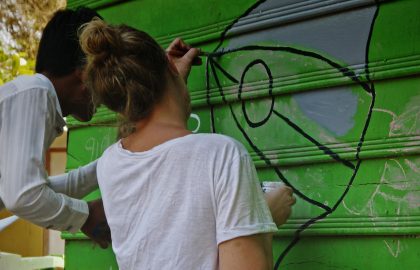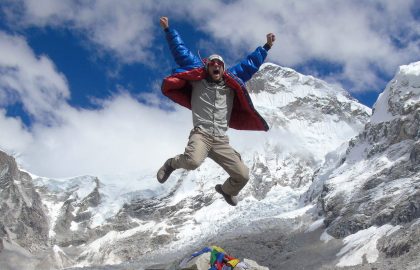Description
Location: Tena, Ecuador
Duration: Minimum 4 weeks (flexible for min. 2 weeks depending on intern’s qualifications), Maximum 1 year
Start Dates: Project is ongoing, and you can join at any time, depending upon availability
Cost: $500 for the 1st week + $350 for each additional week (2 month minimum is recommended) – see ‘Costs’ tab for further details
Benefits:
- Learn about Amazonian cultures through the mediums of art, pottery, jewelry-making, basket weaving, dance, and music
- Incorporate local traditions in art and music with your skills and interests and collaborate on events for the community
- Gain experience in designing and implementing art and music workshops for kids and adults in schools, shelters, and after-school programs
- Practice your own works of art and dance to share with locals and your community back home
- Shadow masters in Amazonian arts, and learn how they use all-natural, plant-based ingredients to create materials
- Research & dissertation support available with partner organizations and universities, if requested
- Keywords: art, art history, culture, design, jewelry-making, dance, music, theatre, weaving, local products, pottery, ceramics, natural products, economic development, sustainable development, indigenous traditions.
Introduction
The Amazon rainforest is one of the most biodiverse ecosystems in the world and has thousands of species of plants, insects, and animals. For thousands of years, Amazonian indigenous peoples have been utilizing the gifts of the Pachamama – Mother Earth – to create art and goods, such as bowls, cups, paints, jewelry, and even clothes. Also, many local dances celebrate the earth for her gifts and others tell stories of life in the rainforest including hunting, animal encounters, falling in love, and marriage.
This internship is a unique opportunity to experience the cultures of the Ecuadorian Amazon through the mediums of art, pottery, music, and dance.Interns support on-going arts projects and have the opportunity to design and implement their own workshops about art, marketing, tourism, or a different topic of interest with locals.
Daily Life
Internships begin with an orientation in the city of Tena. After, interns spend the first few weeks getting to know their host family and getting introduced to their placements. Depending on the needs of the placement, potential internship activities include:
- Learn about the different art forms of the host community and who makes the artisan goods
- Attend music, dance, and storytelling events led by community members
- Hike through agroforestry farms in the forest and collect natural materials for drawing, jewelry-making, dying, and ceramics
- Practice different forms of art with locals, including weaving baskets and bags, making jewelry, wood carving, and more
- Assist local entrepreneurs with design and marketing of their woven goods, jewelry, and other products
- Design and implement arts-based workshops to share with community members
- Design and implement workshops topics related to a topic of interest and that incorporate art as a method of transmitting knowledge; using art to talk about recycling, environmental conservation, leadership, self-esteem, etc.
- Assist with tourism activities, including cooking, preparing cabins, guiding visitors, translating, and explaining on-going art projects
- Organize English lessons with locals who are eager to advance their language skills and receive Spanish and Kichwa lessons from them as well
An average day for an arts intern looks like:
***NOTE: Schedules can differ based on the intern’s placement and projects interns collaborate on. The following sample schedule is based off of past interns’ experiences.***
- Wake up and have breakfast with host family (***If you are with a very traditional indigenous family, you can wake up with them at 4 or 5am and share in the ritual of drinking guayusa tea as a family. ALSO, morning is when most families work on making artisan goods.***)
- Head to the chakra (agroforestry farm), activity with local artisan, independent research, and/or assist with tourism activities
- Lunch with host family (***OR: When interns are in the field they can buy lunch or bring a packed lunch***)
- Continue research, finish up daily tasks, and practice weaving, jewelry-making, etc.
- Return home around 5/6 pm for dinner with the family (***We encourage interns to spend as many evenings and weekends as possible with their host families to make the most of their immersions, learn about the culture, and practice their Spanish***)
- Other activities to get involved in after work and on the weekends: sports, clubs, teaching English, meeting up with other interns, going on weekend trips to nearby tourist destinations, swimming in rivers, rafting, hikes to waterfalls and swimming holes, chocolate-making
Interns need to bring extra spending money for their transportation, meals not eaten with the family, and activities and travel outside of the program. The cost of living and transportation costs are explained in more detail in the intern manual provided to incoming participants to help them calculate how much extra money they should bring.
***NOTE: Specific projects change throughout the year depending on the needs of our partner organizations. The projects interns work on during their internship are based on the organization’s’ immediate needs and workflow.***
Travel & Accom.
The best airport to fly into is Mariscal Sucre International Airport (UIO) in Quito, Ecuador’s capital. Interns need to arrive to Quito no later than the night before their orientation begins. Quito is only 4 hours from Tena, the main city in the Napo Province. On the morning of orientation, a staff member schedules a taxi to pick interns up and bring them to Tena for training; they just have to pay the driver upon arrival.
Interns stay in Tena during orientation, and the cost of the accommodation is provided. The rest of the program is spent living with a local host family. This is an amazing opportunity to immerse in the local community, learn about the culture, and practice Spanish. Host families provide 3 meals per day, bedding, and a place to do laundry.
Requirements
Interns are expected to finance their own travel costs (international and while in Ecuador).
Other requirements include:
- Minimum 4 weeks commitment, recommended 8-12 weeks (flexibility for a minimum of 2 weeks however this could affect the price).
- Academic and/or professional experience in the fields of art, theater, music, dance, literature, sociology, anthropology, or a related field
- Full travel & medical insurance
- Necessary vaccinations
- Necessary visa costs
Costs
$550 USD for the 1st week, $350 USD* for each week thereafter.
* Currency conversions are approximate. Use xe.com for up to date currency conversion rates
** All payments incur a 5% bank transfer fee
*** Places are confirmed with a 1 week deposit.
What’s Included:
- Accommodation during orientation
- Accommodation and 3 meals a day with a host family. Includes a private room, bathroom, all bedding, and place to do laundry
- Guided pre-departure preparation
- In-country orientation that addresses risk management, culture shock, cross-cultural adaptation skills, history/culture/politics of Ecuador and the Amazon, team-building, goal-setting, and more
- 1:1 check-ins every 2 weeks
- 24/7 emergency support
- Network of doctors, therapists, Spanish tutors in-country
- Access to network of experts and information databases for research support
- Exit interview and end-of-program reflection
- Alumni group and future references
What’s not included:
- Costs of flights and visa
- Costs of vaccinations
- $15 per day for food during orientation training
- Personal transportation
- Any other activities outside of scheduled program activities (white water rafting, yoga, workshops, guided jungle hikes, etc.)
Full assistance will be provided in getting all these arranged if you choose our Premium Support.
Premium Support Upgrade
We understand there’s a great deal to plan and organise for your trip. When booking a Placement, many of our participants choose to purchase our Premium Support Upgrade to benefit from the expertise, knowledge and experience of our Project Coordinators. We can provide the personal advice you need to ensure your trip is organised with excellence and planned with efficiency; ensuring the very best experience possible. Read more about how we can help you.
Note: Map coordinates are approximate

